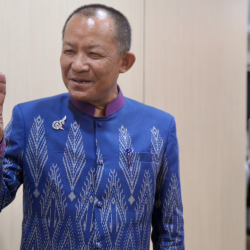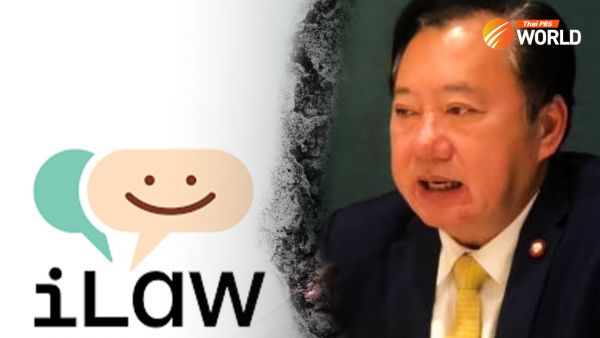Teenage murder prompts debate in Thailand: Should kids face adult punishments?

A shocking murder recently committed by a group of boys aged 13 to 16 has prompted a big question in Thailand. Should children who commit serious crimes be sentenced as harshly as adult criminals?
Under current Thai law, children aged between 12 and 15 are protected from criminal punishment but can be subject to measures imposed by a court. Juvenile offenders aged 15 to 17, meanwhile, may face punishment – including time behind bars. However, they will only receive half the punishment of an adult sentenced for the same offense. If no penalty is meted out, they can still be sentenced to a period of rehabilitation.
Until 2022, all children under the age of 10 were considered too young to be held criminally liable. The age of criminal responsibility was raised that year based on medical opinion that by the age of 12, humans’ mental capacity has developed to the point where they can tell right from wrong.
Will the age of criminal responsibility get lower?
National Police Commissioner General Torsak Sukvimol revealed recently that a panel had been established to scrutinize juvenile crimes over the past five to six years in support of a review into whether Thailand’s current age of criminal responsibility is appropriate.
“The panel is expected to reach a conclusion before the end of this month,” the police chief said. “We will then forward our opinion to the prime minister and relevant authorities.”
Thicha Nanakorn, who heads the Ban Kanchanapisek Juvenile Vocational Training Center for Boys, cautioned against any rush to change the law.
On January 12, the body of Buapan Tansu – a homeless and mentally ill woman – was found with severe head injuries in a pond in Sa Kaeo. The head wound indicated that she had been murdered.
Police initially arrested her husband. But footage from a CCTV camera footage then showed that five teenage boys had assaulted Buapan and dragged her away. The five boys have been brought to court. Their parents also face charges of negligence leading to their children committing a serious crime.
“I know everyone is angry, myself included. But we can’t vent our fury on all children and decide the future based on this emotion,” Thicha said.
She emphasized that children’s character and behavior were the outcome of adults’ action or inaction. In her view, instead of revising the punishable age, the country should tackle the roots of child delinquency and lawlessness by reforming the Royal Thai Police, Social Development and Human Security Ministry, the Justice Ministry, and Education Ministry.
Juvenile crime surge
Records from the Department of Juvenile Observation and Protection show that violence among children and youths fell between 2017 and 2021, before surging in 2022.
In 2022, children and youths committed 12,203 criminal offenses. The most common were crimes related to narcotics, theft, physical assault and sexual assault. More than half of these young offenders were in junior secondary education. The next biggest group by educational level were those in primary education, followed by those in vocational education. Over three-quarters of all the crimes (9,239) were committed by children or youths from broken families.
Rangsit University’s vice president Assoc Prof Dr Krisanaphong Poothakool, an expert in criminology and law enforcement and a former police officer, said the international community generally considers that children and youths lack development and experience. As such, they can make mistakes. And if mistakes happen, they should be given opportunities to reform and rehabilitate.
“Punishment is one way of dealing with child criminals. But deeper than that, we need to find out what led them to commit crimes. Why didn’t someone stop them when their behavior started to turn aggressive and wayward?” Krisanaphong asked.
Punished like adults
Krisanaphong does not entirely rule out the idea that child offenders should be punished by law.
He suggested appointing a panel to decide on the punishment in cases where youths commit brutal and premeditated crimes.
“In the case of Buapan, it was brutal and premeditated. She was beaten up before being thrown into the pond,” he pointed out.
Several countries have passed laws to prosecute child criminals as adult offenders. In the United States, most states allow juvenile offenders to be punished as adults when they reach the age of 16. However, some states set the minimum age as low as 13. Meanwhile a handful of states allow a child of any age to be punished as an adult if he or she commits murder.
Last year, a court in Florida sentenced a 16-year-old boy to life in prison for fatally stabbing his classmate two years earlier, when he was just 14. He was prosecuted and punished as an adult given that he had stabbed his victim as many as 114 times.
The US changed the law to make it possible to punish children like adults in the 1980s and 1990s amid an alarming rise in the number of murders committed by youngsters.
In South Korea, calls are growing to lower the minimum age of criminal liability from the current 14 years old.
‘Focus on root causes’
The United Nations defines youths as people aged between 15 and 24 years old. It lists major factors that contribute to juvenile crime as poverty, inequality, lack of opportunities, peer pressure, school culture, and upbringing.
Punishment alone, therefore, may not reduce or prevent juvenile crime, since it does not address these root causes of the problem.
The UN also states that sending juvenile offenders to adult prisons may expose them to professional criminals and practices that raise the chance of them reoffending or becoming involved in criminal organizations.
Thicha said that juvenile crime and other social problems would be preventable if societies empowered children and removed threats to their wellbeing.
“When children are not brought up in a proper environment, they can be lost to the darkness” she said. “We need to cultivate an environment that brings the best, not the worst, out of children”.
She also urged better control of narcotics and marijuana to keep them out of the hands of children, along with more spaces for youths to show off their talents.
By Thai PBS World’s General Desk






